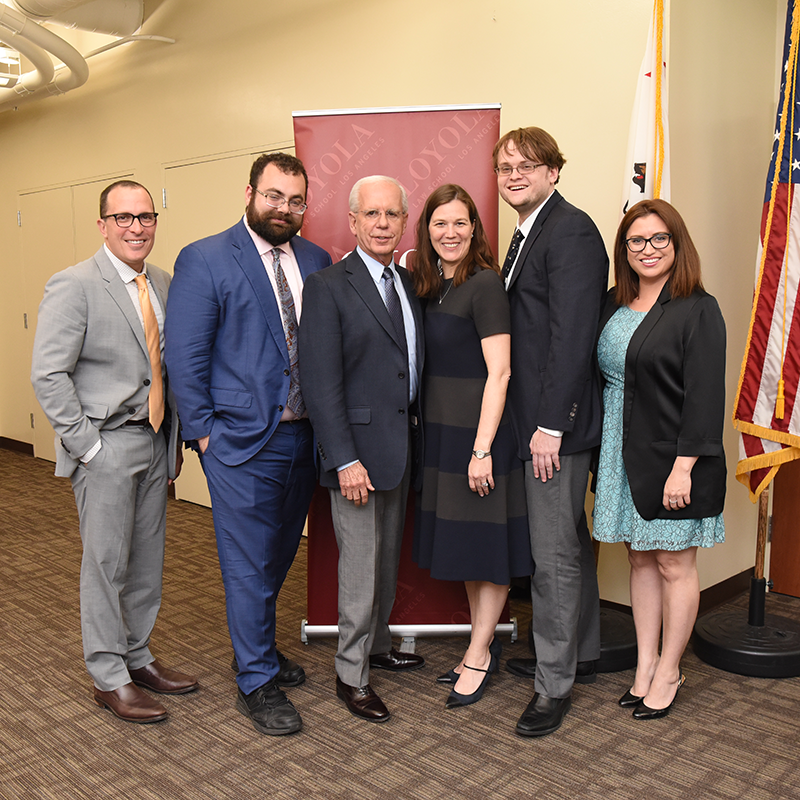The Perils of QALY's: Addressing discrimination against people with disabilities and serious chronic conditions

The potential for discrimination inherent in metrics evaluating the cost effectiveness of medical treatments for people with disabilities was examined during a conference co-sponsored by the Coelho Center for Disability Law, Policy and Innovation. The conference, “The Perils of QALYs: Addressing Discrimination Against People with Disabilities and Serious Chronic Conditions,” on Monday, May 20, 2019, was co-sponsored with the Partnership to Improve Patient Care.
Former Rep. Tony Coelho, founder of the Coelho Center, based at LMU’s Loyola Law School, and author of the Americans with Disabilities Act, was part of the panel.
“This is my ministry – that those of us impacted by policies should have a seat at the table in creating them. It is why I created the Coelho Center – to ensure that people with disabilities become lawyers and eventually judges that protect the ADA and disability rights,” says Coelho.
“I started PIPC in an effort to make research more patient-centered, with patient and people with disabilities at the table throughout the process so that it answered questions that matter to us. Over the years, PIPC has grown to bring that same passion to engaging patients and people with disabilities in Medicare and Medicaid decisions about access to care.”
Metrics for measuring the “cost effectiveness,” or value, of treatments often rely on data that treat patients and people with disabilities as averages instead of individuals. For example, the quality-adjusted-life-year (QALY), values the lives of people with disabilities and serious chronic conditions as worth less than those of non-disabled people.
Cost-effectiveness and value assessments are increasingly at the center of state and federal discussions about drug pricing, and advocates may be unfamiliar with how to engage with this complicated but important issue.
The conference informed people with disabilities, patients, seniors, families, individuals experiencing disparities in care, providers and advocates about value assessments, the potential for discrimination, and related public policy threats at the federal and state level.
“Disability rights advocates have long fought against the QALY, achieving a prohibition against its use in Medicare within the Affordable Care Act,” said Katherine Perez, executive director of the Coelho Center. “Previous administrations have ruled that using QALYs to allocate health care resources may constitute a violation of the Americans with Disabilities Act. But over the last few years, QALY-based proposals have become increasingly common, threatening access to lifesaving medications for people with disabilities and those with chronic illness.”
The Coelho Center pursues a unique three-pronged mission: convening thought leaders to pursue positive change on disability issues; leveraging technology to advance the lives of people with disabilities; and creating a pipeline of lawyers with disabilities to populate the bench and hold elected office. The Coelho Center also draws on multiple areas of expertise from other LMU colleges. Founded by the former congressman, disability rights icon and LMU alumnus Tony Coelho ’64, the Coelho Center is the only organization of its kind at a Catholic university in America and the only one housed at a top U.S. law school. Details about The Coelho Center are available at www.lls.edu/coelhocenter.